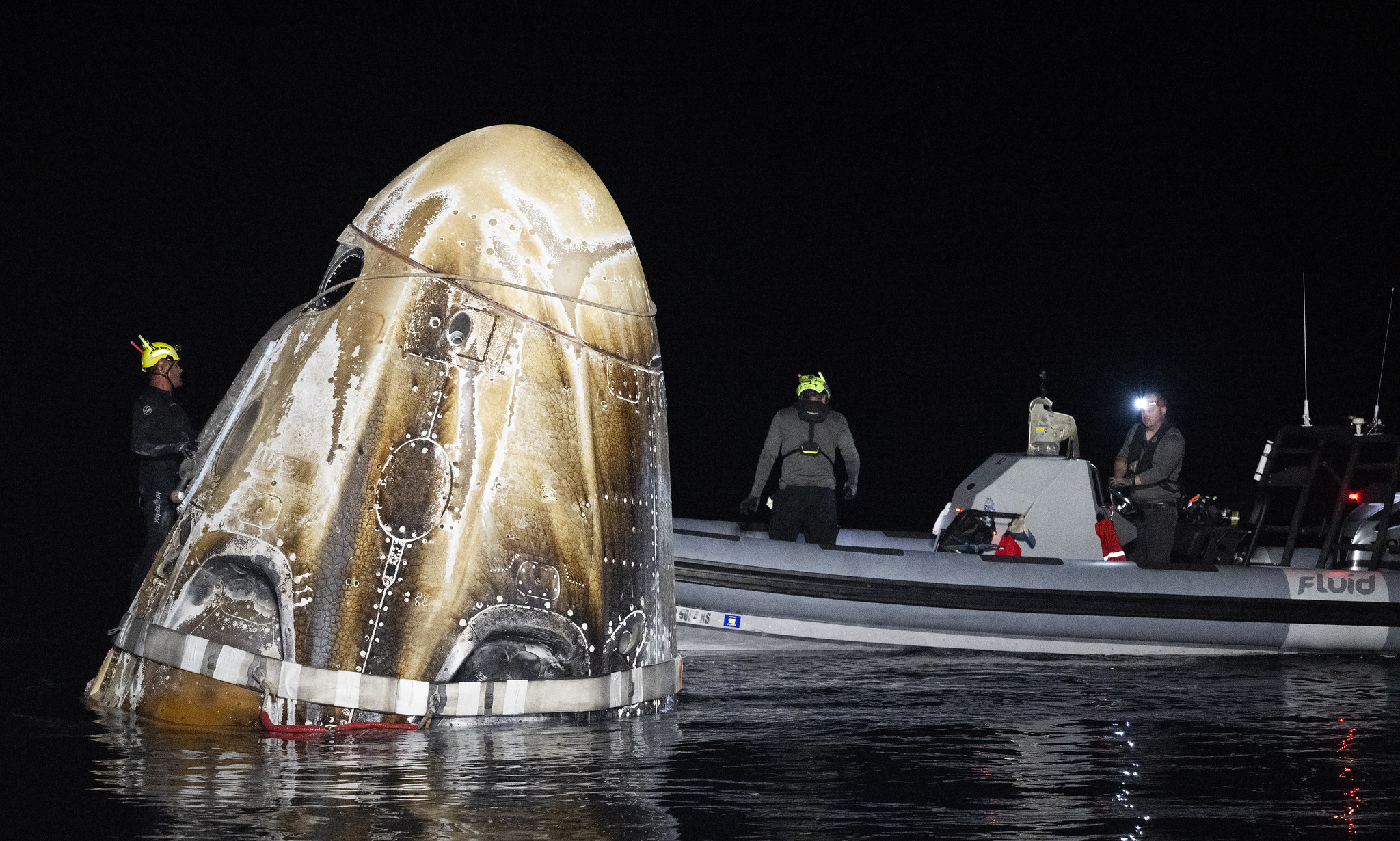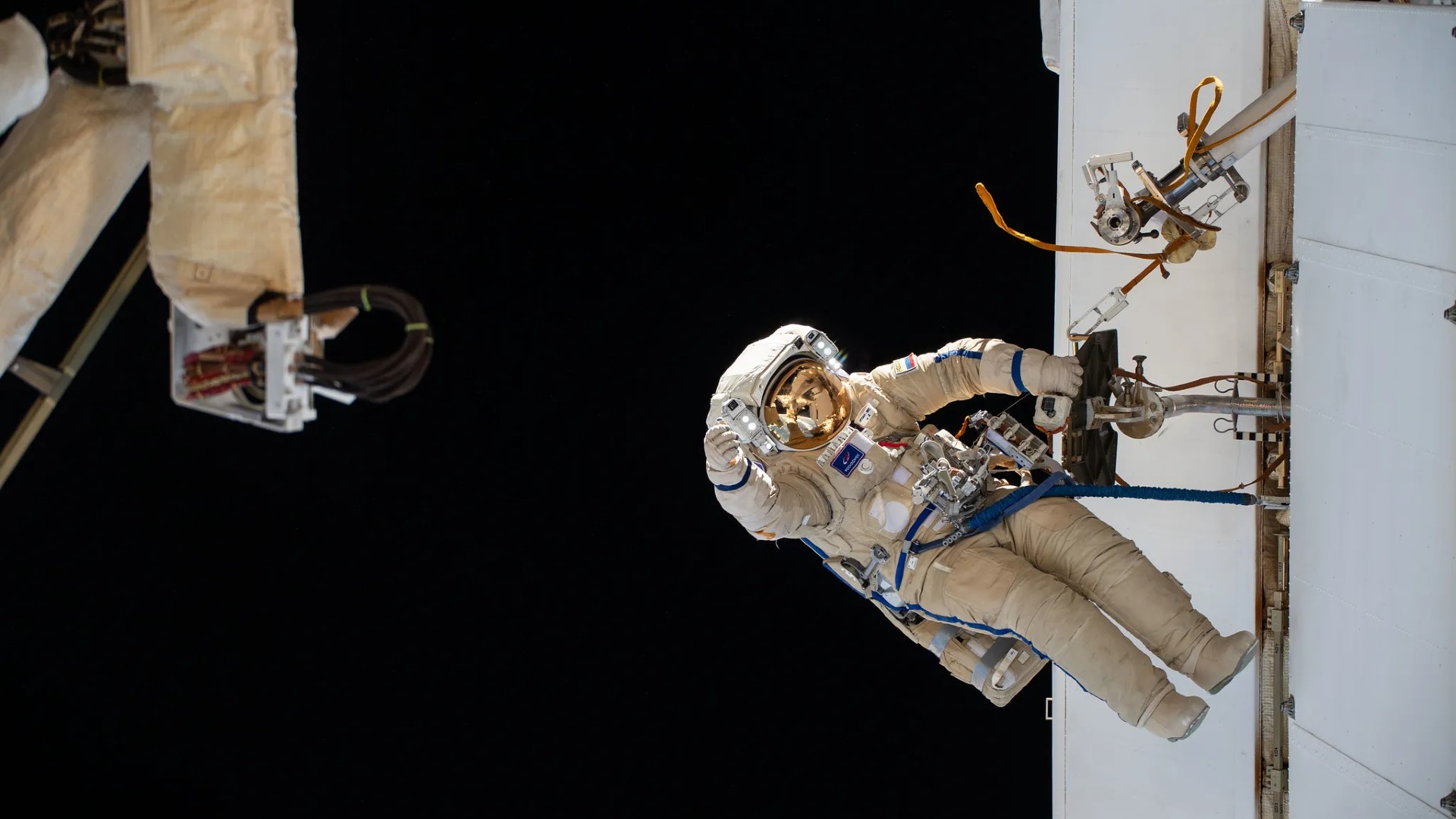SpaceX Crew-8 astronaut released from hospital, returns to Houston

Breaking space news, the latest updates on rocket launches, skywatching events and more!
You are now subscribed
Your newsletter sign-up was successful
Want to add more newsletters?

Delivered daily
Daily Newsletter
Breaking space news, the latest updates on rocket launches, skywatching events and more!

Once a month
Watch This Space
Sign up to our monthly entertainment newsletter to keep up with all our coverage of the latest sci-fi and space movies, tv shows, games and books.

Once a week
Night Sky This Week
Discover this week's must-see night sky events, moon phases, and stunning astrophotos. Sign up for our skywatching newsletter and explore the universe with us!

Twice a month
Strange New Words
Space.com's Sci-Fi Reader's Club. Read a sci-fi short story every month and join a virtual community of fellow science fiction fans!
The NASA astronaut who was hospitalized for a night after the splashdown of SpaceX's Crew-8 mission has been released and is doing well, according to the agency.
The SpaceX Crew Dragon capsule "Endeavour" returned to Earth on Friday morning (Oct. 25) off the coast of Florida, bringing an end to the 235-day Crew-8 mission to the International Space Station (ISS).
The landing went well, and everything appeared to be normal. However, shortly thereafter, NASA announced that all four Crew-8 astronauts — NASA's Matthew Dominick, Michael Barratt and Jeanette Epps, and Alexander Grebenkin of Russia's space agency Roscosmos — were taken to Ascension Sacred Heart Pensacola, a hospital in Florida, for evaluation. This was done "out of an abundance of caution," agency officials said in a post-splashdown news conference.
Three of the four astronauts were released on Friday and flown to Johnson Space Center (JSC) in Houston, where NASA's astronaut corps is based. However, one crewmember — a NASA astronaut — stayed overnight in the hospital "as a precautionary measure," the agency wrote in an update on Friday.
Related: Crew-8 astronauts splash down on SpaceX Dragon Endeavour after weather delays (video)
NASA gave us some good news in another update on Saturday (Oct. 26): The fourth astronaut was released from the hospital that day and returned to JSC.
"The crew member is in good health and will resume normal post-flight reconditioning with other crew members," stated the update, which agency officials said (in an emailed statement) would be the final one on this matter.
Breaking space news, the latest updates on rocket launches, skywatching events and more!
NASA has not identified the astronaut or the issue that led to the hospital stay, and it will not do so in the future.
"To protect the crew member's medical privacy, specific details on the individual’s condition and identity will not be shared," agency officials wrote in Saturday's blog post.
Long-duration spaceflight affects the body in multiple ways, from vision problems to decreases in bone density and muscle mass.
NASA and other space agencies know about these effects and work hard to mitigate them. For instance, astronauts aboard the ISS spend several hours every day exercising to keep their muscles and bones as strong as possible in the microgravity environment.
Crew-8 lasted longer than a typical ISS stint, which is about six months. But other astronauts have lived away from their home planet for more extended periods. For example, NASA's Frank Rubio and cosmonauts Sergey Prokopyev and Dmitry Petelin spent 371 days aboard the orbiting lab recently after their Soyuz spacecraft sprang a leak in orbit and they had to wait for a new ride home.
Russia's Valeri Polyakov holds the all-time record for the longest continuous space stay — 437 days, set aboard the Soviet-Russian Mir space station in 1994-95.

Michael Wall is a Senior Space Writer with Space.com and joined the team in 2010. He primarily covers exoplanets, spaceflight and military space, but has been known to dabble in the space art beat. His book about the search for alien life, "Out There," was published on Nov. 13, 2018. Before becoming a science writer, Michael worked as a herpetologist and wildlife biologist. He has a Ph.D. in evolutionary biology from the University of Sydney, Australia, a bachelor's degree from the University of Arizona, and a graduate certificate in science writing from the University of California, Santa Cruz. To find out what his latest project is, you can follow Michael on Twitter.

